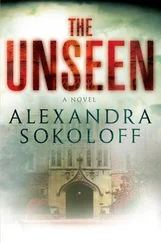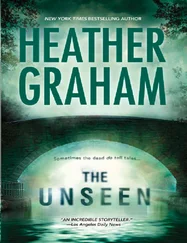“Thank you, Ada,” said Ron Loughner. “This will be very helpful.”
Ada nodded formally. She felt traitorous and low. But she viewed Loughner as an unwelcome but necessary ally in her quest to learn the truth.
One evening, Ada, from upstairs, heard the familiar sound of Liston lifting the telephone receiver in the kitchen, and she ran to the hallway.
By the time Ada had joined the call, as quietly as she could, it took her a few moments to determine who was on the other end.
“It’s so very good to hear from you,” a voice was saying. “Of course I remember.” There was a slurring, monotone quality in the person’s speech, as if from disease; whoever it was sounded very old, and had a lovely, refined Brahmin accent. His voice was familiar to Ada. It rang a bell someplace deep in her memory.
Liston explained why she was calling. “I’m sorry to be the one to inform you,” she said. “I was shocked myself. But I’m wondering if you can recall anything about his hiring, what you knew.”
Of course: it was Robert Pearse, President Pearse, David’s former friend and ally, before his dreaded successor McCarren came along. It had been President Pearse who’d hired David permanently out of the Bit’s graduate school many decades before. He had been diagnosed with Parkinson’s several years prior; Ada recalled David, concerned, sadly telling her the news. It had caused a serious change in Pearse’s speech, but beneath it Ada recognized, with a surge of warmth, the voice of the man who had once been their friend. He had always kept a stash of Mars bars in his desk. He had given Ada one each time he saw her.
There was a pause on the other end.
“Do you recall anything odd about his paperwork or references?” asked Liston, trying again.
“I recall nothing of the sort,” he said. “My goodness, Diana. I’m having trouble understanding you.”
“I know,” said Liston quickly. “It’s possible that this might be a misunderstanding. But we’re having some legal trouble now, you know, about guardianship for Ada.” She was speaking formally, unnaturally. She did not sound like herself. She had always been flustered around Pearse: Ada could sense it from the time she was very young. There was something about him, Liston had confessed once to David, that reminded her of a priest.
“That poor child ,” said Pearse, and Ada imagined him in his large and gracious study — she and David had been to his home once, a stately row house on Beacon Hill — shaking his head.
“He came here in — let’s see — must have been 1951 or ’2,” continued Pearse. “He was a standout graduate student here. Integral to the building of the GOPAC under Maurice Steiner. Furthermore, I recall speaking with his undergraduate thesis advisor at Caltech personally. Donald Powell. Unfortunately, I believe he’s since died.”
“Okay,” said Liston, nervously.
“That will be true of most of the faculty who once taught him, I suppose,” said Pearse. “My goodness, he’s been here at the Bit for nigh on thirty-five years.”
“Caltech says they have no record of him,” said Liston.
“A mistake, I’m afraid,” said Pearse, the volume of his voice increasing unexpectedly. “How ridiculous. Powell was a friend of mine. I can tell you with certainty that David Sibelius was his protégé as an undergraduate. A sort of genius, I think. And I know the two remained in touch for some time.”
In that moment Ada loved President Pearse nearly as much as David. Relief and gratefulness surged through her. Was it possible, she wondered, that it was all a misunderstanding?
“Furthermore, I knew his people,” said Pearse. “The Sibeliuses, out of New York. I know their relationship with David was strained, but I can’t imagine why they would have said he was missing when they knew very well he was here at the Bit.”
Pearse told Liston, at last, that he had to go. He wished her luck, told her to contact him again with any other questions. “Though I would say, Diana,” he said, “that this is not worth investigating further. It seems like a matter of shoddy record-keeping, if it is anything at all.” His voice betrayed his tiredness, elided vowels and consonants like a skipping record. His energy was flagging. He breathed in and out with effort.
Ada waited until Liston had hung up and then, slowly, quietly, she hung up her extension. She had been justifying her spying by imagining — perhaps correctly — that Liston knew that she was doing it. Or even if she didn’t, Ada told herself, she had every right to know. She released the breath she had been holding.
And then she heard a noise behind her, and turned to see Gregory Liston, looking at her frankly, quite still.
Ada crossed her arms defensively, waiting for him to accuse her of what she had, in fact, been doing. But he only looked at her. She returned his gaze defiantly.
He lacked his older brother’s ease and gracefulness. He was in every way William’s physical opposite: dark-haired and dark-complexioned where William was fair; thin and slight in the places where William had acquired a grown-up solidity. He was short for his age, shorter than Ada; when she saw him next to his peers at Queen of Angels, he looked younger and smaller than they did. His usually lowered head contributed to Ada’s impression that he was somehow in a constant state of sinking toward the earth. There was something about him that reminded her of a creature from a myth, a faun, an elf. He had dark eyes with dark shadows beneath them, as if he did not sleep, and his ears protruded slightly. He had sharp elbows that stuck out beneath the plain white T-shirts he usually wore when not in his school uniform. He scratched one of them now thoughtfully.
“I was trying to make a call,” Ada said finally, “but your mother was using the phone.”
Gregory shrugged.
Then he said, “I heard your dad might have lied about a lot of things,” and for the first time in Ada’s life she understood why punches were thrown, and she even went so far as to ball her fist into a tight little knot at her side.
He looked momentarily alarmed — perhaps more at the sight of her face, which had crumpled, than because of any threat that she posed.
“You don’t know that,” Ada said. It was all she could think of to say.
“It’s probably true, though,” said Gregory. “Odds are.”
After that, Ada avoided Gregory. She continued to visit David, but her visits now caused a deep, abiding sadness in her. They no longer spoke at length, and the absence of good conversation with her father felt to her like an absence of something essential and sustaining, like food, like water.
In the following weeks, Loughner brought the news that he had found and contacted Birdie Auerbach, who by then was living in New Mexico. She told him nothing of substance; only that, yes, she and David had entered into an agreement; and no, she knew nothing more about his background than anyone else did.
“What did she say about me?” Ada asked, and, seeing the look on Loughner’s face, immediately wished she hadn’t. The truth — which she would find out only as an adult — was that Birdie Auerbach had indicated that she was perfectly content to relinquish her parental rights to Ada. Oh, I can’t get involved in all that , she had said, in fact, to Loughner, who had relayed those words to Liston. But, in a rare moment of gracefulness, he had refrained from passing them on to Ada herself. Instead, he told her that Birdie Auerbach was very busy with work, which meant she was worried that she wouldn’t be as available to Ada as she wanted to be. “But she sends you her best,” said Loughner. “She told me to tell you that, actually.”
As often as she could, Ada worked at the code on the disk her father had given her, a jumble of letters that by now she knew by heart. Perhaps, she thought, it contained the answers to all of her questions. Perhaps David had always planned to give her this information; perhaps he had tried to tell her. The thought comforted her. But she still could not solve it.
Читать дальше












